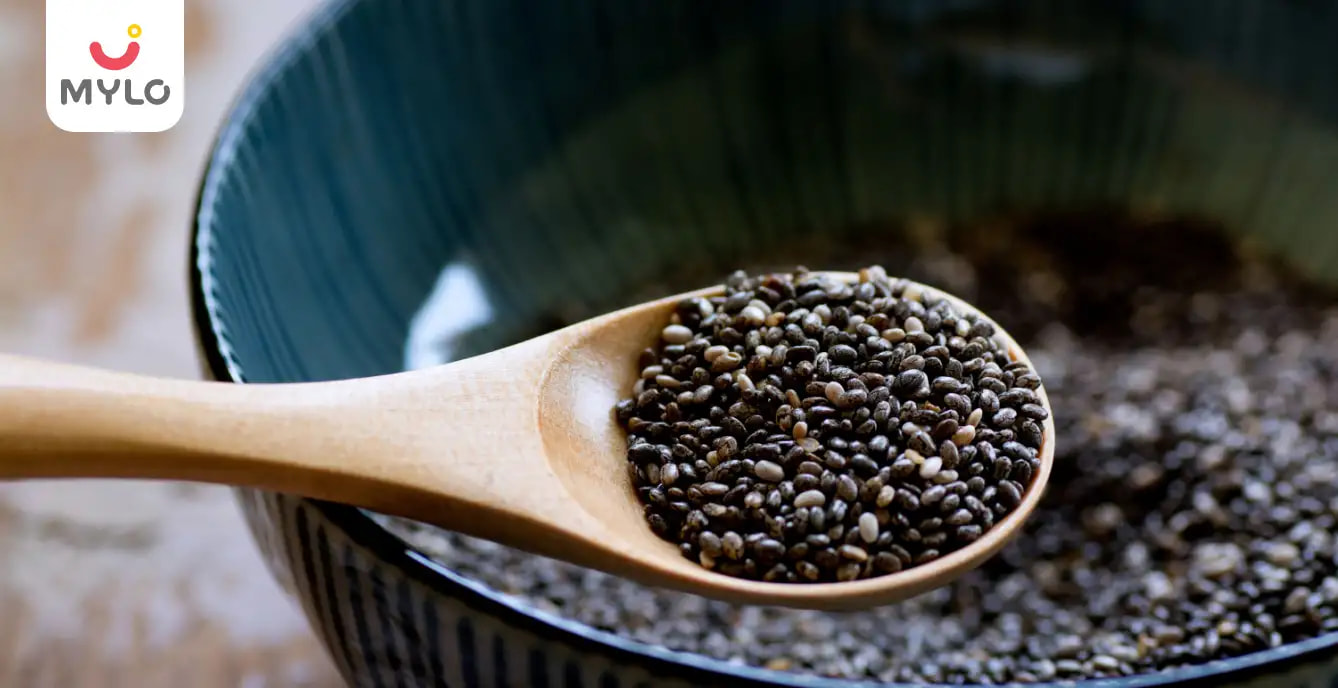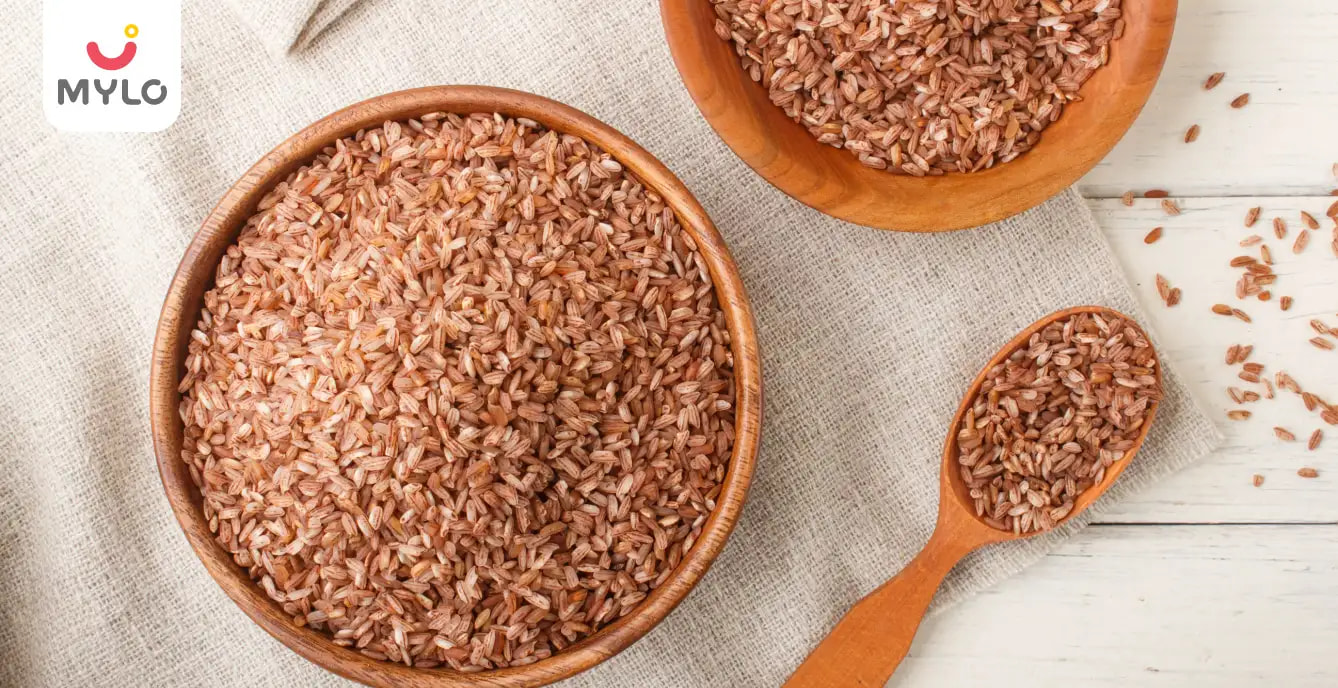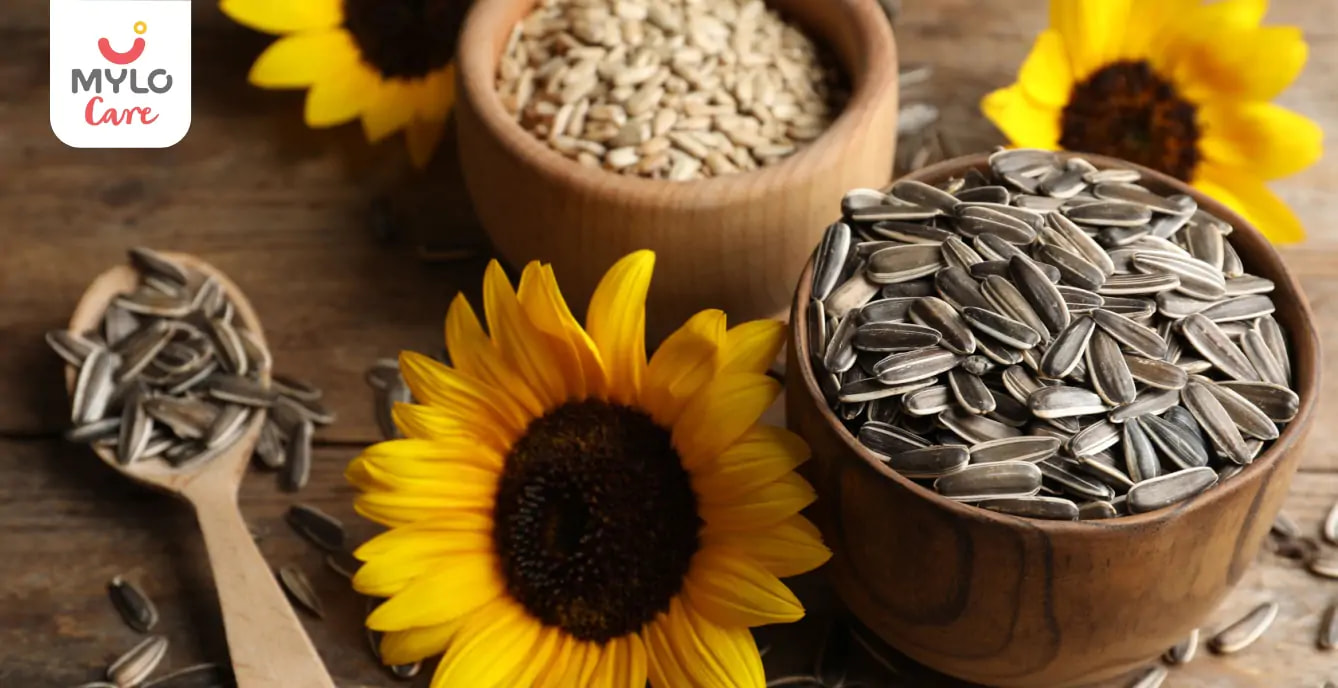Home

Diet & Nutrition

Cauliflower During Pregnancy: Effects, Risks & Benefits
In this Article

Diet & Nutrition
Cauliflower During Pregnancy: Effects, Risks & Benefits
Updated on 3 November 2023
When it comes to pregnancy, there are many things that women are advised to eat – and for a good reason. Eating a nutritious and balanced diet is essential for both the mother and the baby. One vegetable that is often recommended for pregnant women is cauliflower. If you are wondering- Pregnant women can eat cauliflower? You’re just at the right place. This blog features everything expecting mothers needs to know about eating cauliflower during pregnancy, its benefits, and its risks.
What benefits does eating cauliflower have?
Cauliflower is a good source of vitamins and minerals, including vitamin C, folate, and potassium. It also contains antioxidants and phytochemicals, which are thought to have several health benefits. So, what are the specific benefits of eating cauliflower during pregnancy?
-
Firstly, cauliflower is a great source of folate. This is important because folate helps to prevent congenital disabilities, including neural tube defects.
-
Secondly, cauliflower is a good source of vitamin C. This vitamin is important for pregnant women because it helps to protect the baby from infection. Vitamin C is also needed for the formation of collagen, which is important for the development of the baby’s bones, teeth, and blood vessels.
-
Thirdly, cauliflower contains antioxidants and phytochemicals. These substances are thought to help protect against some chronic diseases. It can also lower the chances of conditions like preeclampsia.
-
Lastly, due to its high fibre content, cauliflower is beneficial in curbing constipation, which is extremely common during pregnancy.
So, if you’re pregnant, include cauliflower in your diet. It’s a nutrient-packed vegetable that can help to keep you and your baby healthy.
Is Cauliflower safe for pregnant women?
Expecting mothers always wonder if it's safe to eat cauliflower during pregnancy or if cauliflower is good for pregnancy. Here's what they need to know about adding this versatile veggie to their diet.
Cauliflower is a nutritious addition to any diet, but pregnant women must get their fill of this nutrient-rich food.
Cauliflower is good for pregnancy, and most pregnant women can safely eat cauliflower without any problems. However, if they have a history of food allergies, they should talk to the doctor before eating cauliflower or any other new food. Also, overeating cauliflower can lead to gas and bloating.
Effects of excessive cauliflower consumption
The effects of excessive cauliflower consumption are as follows:
-
Gas
-
Bloating
-
Flatulence
-
Colic pains
-
Stomach ache
-
Acid reflux
-
Digestion issues
-
Food-borne diseases such as toxoplasmosis
Cauliflower risks during pregnancy
Cauliflower is a healthy vegetable that can offer many benefits to pregnant women; however, excessive amounts of cauliflower can cause bloating and gas. Since cauliflower is a member of the cruciferous family, it contains sulfur compounds. Overeating causes gas and bloating, which can also lead to colic pains.
Furthermore, pregnant women at risk of developing kidney stones or gout should also refrain from eating cauliflower as it contains a high amount of purines. Women during the end of their third trimester can mistake gas pain caused by cauliflower as labour pain which can cause nervous disposition. Henceforth, pregnant women should avoid overeating cauliflower during pregnancy.
Cauliflower: How to add it to your diet?
When preparing cauliflower, wash it thoroughly under running water. Cut off the stem and leaves and break the head into small florets. Steam or boil the florets for 5-10 minutes or until they are tender.
Pregnant women can eat steamed or boiled cauliflower as a side dish with their meals. They can also make delicious cream soup from cooked/steamed cauliflower that is both filling and flavorful, unlike steamed cauliflower which is mostly bland. Cauliflower can be shredded and then stir-fried to make a fantastic side dish with rice. Similarly, there are many other traditions and modern ways of preparing cauliflower.
What safety measures can you take when consuming cauliflower?
While cauliflower is generally safe to eat during pregnancy, there are a few safety measures pregnant women should take when consuming it.
When choosing cauliflower, look for heads that are white or cream-coloured with no brown spots. Avoid small heads, have florets that are starting to separate or have leaves that are wilted or yellowing.
Next, make sure it's thoroughly cooked. Cauliflower can harbour bacteria, so it's essential to cook it thoroughly to reduce the risk of foodborne illness. When eating cauliflower, chew it well to avoid gas and bloating.
As with any food, eat cauliflower in moderation. If you have any concerns about consuming cauliflower during pregnancy, talk to your healthcare provider.



Written by
Loveleen Gupta
A working mother with more than two decades of experience in writing for the publishing industry and digital space, Loveleen Gupta loves dabbling in creative writing also. A graduate from Miranda House, she uses her personal experiences to express herself.
Read MoreGet baby's diet chart, and growth tips

Related Articles
RECENTLY PUBLISHED ARTICLES
our most recent articles

Diet & Nutrition
গর্ভাবস্থায় আলুবোখরা: উপকারিতা ও ঝুঁকি | Prunes During Pregnancy: Benefits & Risks in Bengali

Diet & Nutrition
গর্ভাবস্থায় হিং | ঝুঁকি, সুবিধা এবং অন্যান্য চিকিৎসা | Hing During Pregnancy | Risks, Benefits & Other Treatments in Bengali

Women Specific Issues
স্তনের উপর সাদা দাগ: লক্ষণ, কারণ এবং চিকিৎসা | White Spots on Nipple: Causes, Symptoms, and Treatments in Bengali

Diet & Nutrition
গর্ভাবস্থায় পোহা: উপকারিতা, ধরণ এবং রেসিপি | Poha During Pregnancy: Benefits, Types & Recipes in Bengali

Diet & Nutrition
গর্ভাবস্থায় মাছ: উপকারিতা এবং ঝুঁকি | Fish In Pregnancy: Benefits and Risks in Bengali

Diet & Nutrition
গর্ভাবস্থায় রেড ওয়াইন: পার্শ্ব প্রতিক্রিয়া এবং নির্দেশিকা | Red Wine During Pregnancy: Side Effects & Guidelines in Bengali
- ইনার থাই চ্যাফিং: কারণ, উপসর্গ এবং চিকিৎসা | Inner Thigh Chafing: Causes, Symptoms & Treatment in Bengali
- গর্ভাবস্থায় ব্রাউন রাইস: উপকারিতা ও সতর্কতা | Brown Rice During Pregnancy: Benefits & Precautions in Bengali
- Velamentous Cord Insertion - Precautions, Results & Safety
- Unlock the Secret to Flawless Skin: 7 Must-Have Qualities in a Face Serum
- Unlock the Secret to Radiant Skin: How Vitamin C Serum Can Transform Your Complexion
- Gender No Bar: 10 Reasons Why Everyone Needs a Body Lotion
- Unlock the Secret to Radiant Skin How to Choose the Perfect Body Lotion for Your Skin Type
- Top 10 Reasons to Apply a Body Lotion After Every Bath
- Communication in Toddlers: Milestones & Activities
- How to Improve Vocabulary for Toddlers?
- A Comprehensive Guide to Understanding Placenta Accreta
- Vulvovaginitis in Toddlers Causes, Symptoms and Treatment
- A Comprehensive Guide to Understanding Cerebral Palsy in Children
- Bitter Taste in Mouth During Pregnancy: Understanding the Causes and Remedies


AWARDS AND RECOGNITION

Mylo wins Forbes D2C Disruptor award

Mylo wins The Economic Times Promising Brands 2022
AS SEEN IN

- Mylo Care: Effective and science-backed personal care and wellness solutions for a joyful you.
- Mylo Baby: Science-backed, gentle and effective personal care & hygiene range for your little one.
- Mylo Community: Trusted and empathetic community of 10mn+ parents and experts.
Product Categories
baby carrier | baby soap | baby wipes | stretch marks cream | baby cream | baby shampoo | baby massage oil | baby hair oil | stretch marks oil | baby body wash | baby powder | baby lotion | diaper rash cream | newborn diapers | teether | baby kajal | baby diapers | cloth diapers |








